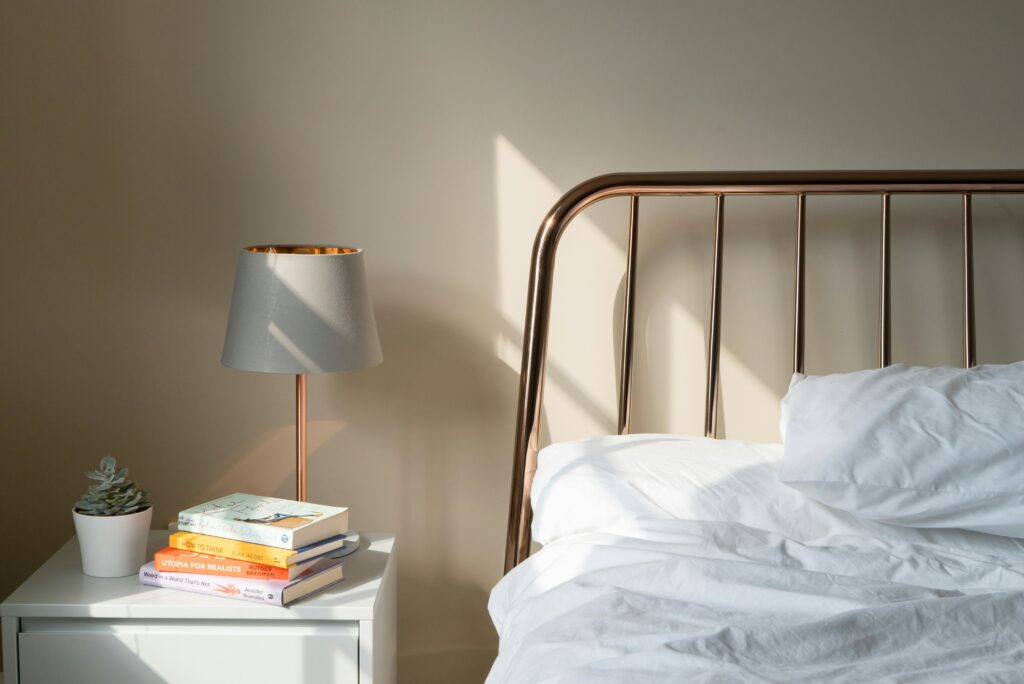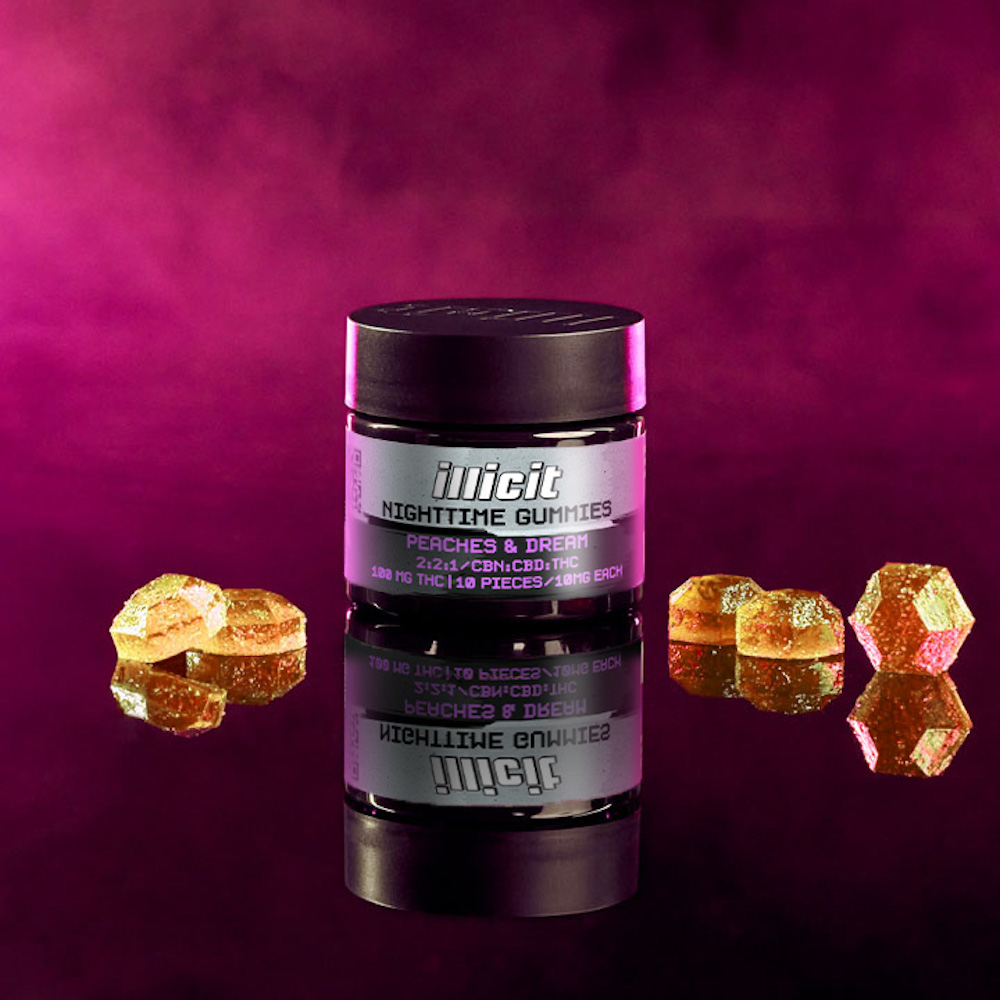Jump to a Section:
- Introduction: Sleepless in the Garden State
- How Cannabis May Influence Sleep
- Sativa, Indica, or Hybrid for Sleep?
- Choosing a Nighttime Format: Pros and Cons
- Dosing for Better Sleep (Start Low, Go Slow)
- Timing Your Nighttime Routine
- Building a Sleep-Friendly Environment
- Safety Tips & Responsible Use
- Belleville & New Jersey Shopping Tips
- Bottom Line: Thoughtful, Personalized, and Patient
- FAQs


Introduction: Sleepless in the Garden State
If you’re lying awake night after night, you’re not alone. Many adults across New Jersey—including folks in Belleville—are exploring cannabis as a potential sleep aid. The attraction is simple: when used thoughtfully, certain products may help you unwind, quiet mental chatter, and ease into sleep. This guide explains how cannabis interacts with sleep, which product types fit different needs, how to dose and time your session, and how to use it responsibly as part of a broader sleep routine.
How Cannabis May Influence Sleep
Cannabis interacts with the body’s endocannabinoid system (ECS)—a network that helps regulate processes like mood, stress response, and sleep-wake cycles. Two cannabinoids get most of the attention:
- THC (tetrahydrocannabinol): Intoxicating; can deliver a sense of body calm, muscle ease, and mental softness that some people find conducive to falling asleep.
- CBD (cannabidiol): Non-intoxicating; often described as grounding. For bedtime, it may temper THC’s intensity, promoting a steadier experience.
You’ll also hear about CBN, a non-intoxicating cannabinoid commonly included in “sleep” formulas. Many adults like THC:CBN or CBD:CBN blends for a gentler, more sustained nighttime feel.
Terpenes, the aromatic compounds in cannabis, matter, too. People who shop for rest often prefer products highlighting myrcene, linalool, or beta-caryophyllene, which are frequently associated with soothing, mellow profiles.
Sativa, Indica, or Hybrid for Sleep?
Labels like sativa, indica, and hybrid are common on New Jersey dispensary shelves. While “indica” products are marketed for nighttime and “sativa” for daytime, your experience is shaped more by the cannabinoid ratio, total THC, and terpene mix than by the label alone. Treat the category as a starting hint, then use product data—and your own notes—to confirm what actually works for you.
Choosing a Nighttime Format: Pros and Cons
Different formats change onset, duration, and overall feel. Here’s how to align them with your sleep goals:
Inhalation (Flower, Pre-rolls, Vapes)
- Onset: Minutes
- Duration: Shorter (often 2–3 hours)
- Why choose it: Fast feedback; easy to stop as soon as you feel ready for bed
- Watchouts: Shorter duration may not cover the whole night for some people
Edibles (Gummies, Chocolates, Beverages)
- Onset: Slower (typically 30–120 minutes)
- Duration: Longer (often 4–8 hours or more)
- Why choose it: Can support sleep continuity once you’re out
- Watchouts: Easy to overdo; resist taking more too soon
Tinctures & Sublinguals
- Onset: Often faster than standard edibles when held under the tongue
- Duration: Moderate to long
- Why choose it: Precise dosing; easier to fine-tune nightly routine
Capsules & Tablets
- Onset: Similar to edibles
- Duration: Longer, predictable
- Why choose it: Discreet and consistent for ritualized bedtime use
Topicals
- Onset/Duration: Localized, non-intoxicating
- Why choose it: Complement for body tension without a head high; often paired with another format


Dosing for Better Sleep (Start Low, Go Slow)
If you’re new to nighttime cannabis, your mantra is “minimum effective dose.” Build up gradually over separate nights, not the same evening.
- Microdose: 1–2.5 mg THC (or CBD-forward products) for a subtle nudge toward calm
- Beginner range: 2.5–5 mg THC—often enough for gentle body relaxation
- Balanced blends: 1:1 THC:CBD or THC:CBN may feel smoother for newcomers
- Inhalation: One small draw, wait a few minutes, reassess
- Re-dosing rule: With edibles/tinctures, wait at least 2–3 hours before considering more
Keep a sleep journal noting product, dose, timing, how quickly you drifted off, and how you felt in the morning. You’ll quickly identify your sweet spot.
Timing Your Nighttime Routine
Good timing prevents “I took it too late” or “It hit me too early” frustrations.
- Edibles/Capsules: Take 60–120 minutes before lights out (earlier if you digest slowly).
- Tinctures (sublingual): Try 45–60 minutes pre-bed.
- Inhalation: Use 15–30 minutes before bed as a gentle glide path.
- Stacking formats: Some adults combine a micro-edible early with a tiny inhaled dose near bedtime. Start cautiously if you experiment.
Building a Sleep-Friendly Environment
Cannabis is not a magic switch—it works best with solid sleep hygiene:
- Wind-down ritual: Dim lights, lower screens, choose calming music or a warm shower.
- Bedroom setup: Cool, dark, quiet, comfortable bedding.
- Cut caffeine late: Especially after mid-afternoon.
- Consistent schedule: Similar sleep/wake times train your body.
- Mindset: Light stretching, breathing exercises, or a short gratitude list to ease the mind.
Pairing cannabis with these habits often creates a more reliable nightly result.
Common Pitfalls (and Easy Fixes)
- Taking too much: Start smaller than you think. You can always increase next time.
- Re-dosing too soon: Especially with edibles. Patience prevents overconsumption.
- Mixing with alcohol: This can intensify side effects and muddle your read on dosing.
- Irregular routine: Shifting bedtimes or heavy late-night screens can undermine results.
Ignoring product data: Potency and serving sizes vary—read labels carefully.
Safety Tips & Responsible Use
- Don’t drive or perform risky tasks after consuming.
- Talk to your clinician if you’re pregnant, nursing, managing a medical condition, or taking medications.
- Store securely in child-resistant containers, away from kids and pets.
- Take tolerance breaks if you notice diminishing effects over time.
- Use licensed New Jersey dispensaries for tested, clearly labeled products and guidance.
Belleville & New Jersey Shopping Tips
When you visit a licensed dispensary in or around Belleville:
- Describe your goals (e.g., “I want to fall asleep faster” vs. “I wake up at 3 a.m.”).
- Ask for nighttime formulas featuring CBD or CBN with moderate THC.
- Request help reading the lab panel (THC %, CBD/CBN mg, terpene highlights).
- Start with low-dose or split-dose products to fine-tune your range.
- Revisit your budtender with journal notes—they can suggest smarter tweaks.
Bottom Line: Thoughtful, Personalized, and Patient
Cannabis may be a helpful sleep companion when it’s tailored to you—your body, your preferences, and your bedtime routine. Choose formats and doses that fit your schedule, keep notes, and adjust gradually. With a bit of patience, many New Jersey adults find a repeatable nighttime rhythm that supports more restful nights.
FAQs
Is it legal to use cannabis as a sleep aid in New Jersey?
Yes—adult-use cannabis is legal for adults 21+, but only purchase from licensed NJ dispensaries and follow all state and local rules.
What’s better for sleep: THC, CBD, or CBN?
It depends on your goals. Many beginners try balanced THC:CBD or THC:CBN formulas. Keep notes to see what works best for you.
How long before bed should I take an edible for sleep?
Generally 60–120 minutes before lights out. For tinctures, try 45–60 minutes; for inhalation, 15–30 minutes.
Will cannabis help me stay asleep, not just fall asleep?
Longer-lasting formats (edibles, capsules) may better support sleep continuity. Start with low doses.
Can cannabis replace my current sleep aids or prescriptions?
That’s a medical decision. Discuss changes with your healthcare professional, especially if you’re on other medications.
Will I feel groggy in the morning?
Possibly, especially with higher THC doses. Reduce the dose, take it earlier, or choose more CBD/CBN-heavy options.
Do “indica” labels guarantee better sleep?
No. Effects vary by cannabinoids, terpenes, dose, and your body. Use labels as hints and rely on your journaled results.
Can I travel with my nighttime cannabis products?
Do not cross state lines with cannabis, even if it’s legal where you’re going. Follow New Jersey laws and consume responsibly.
